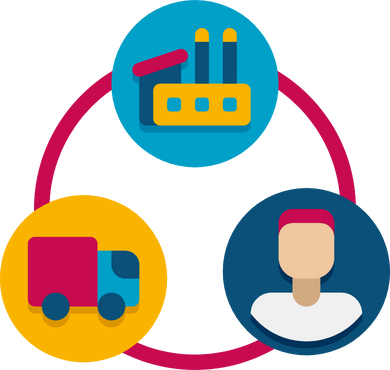Related products
-
Sale!

Inspiring and Motivating Individuals
$890.00Original price was: $890.00.$870.00Current price is: $870.00. Add to cart -
Sale!

Powerful mental tools to help you master tough subjects
$720.00Original price was: $720.00.$700.00Current price is: $700.00. Add to cart -
Sale!

Email Marketing
$400.00Original price was: $400.00.$250.00Current price is: $250.00. Add to cart -
Sale!

Search Engine Optimization
$800.00Original price was: $800.00.$450.00Current price is: $450.00. Add to cart
Supply Chain Analytics Specialization
Description
1. Introduction to Supply Chain Management:
- Overview of supply chain concepts and components
- Importance of analytics in optimizing supply chain operations
- Current trends and challenges in supply chain management
2. Data Analytics Fundamentals:
- Introduction to data analytics tools and techniques
- Understanding data sources and data collection methods in supply chain management
- Data preprocessing and cleaning for supply chain data
3. Supply Chain Performance Metrics:
- Key performance indicators (KPIs) for evaluating supply chain performance
- Measurement and analysis of metrics such as inventory turnover, on-time delivery, and lead time
- Benchmarking and setting performance targets
4. Demand Forecasting and Inventory Optimization:
- Techniques for demand forecasting using statistical methods and machine learning algorithms
- Inventory optimization strategies to minimize costs and maximize service levels
- Inventory management models (e.g., EOQ, JIT) and their applications
5. Supply Chain Network Design:
- Fundamentals of supply chain network design and optimization
- Strategic decisions in network design including facility location, capacity planning, and transportation routing
- Network optimization models and simulation techniques
6. Supplier Relationship Management (SRM):
- Importance of supplier relationships in supply chain management
- Supplier performance evaluation and risk management
- Strategies for improving collaboration and communication with suppliers
7. Transportation and Logistics Analytics:
- Analyzing transportation data to optimize routing, scheduling, and mode selection
- Logistics optimization techniques for cost reduction and efficiency improvement
- Real-time tracking and monitoring of shipments
8. Warehousing and Distribution Analytics:
- Warehouse layout optimization and space utilization analysis
- Order picking and fulfillment optimization
- Distribution center performance measurement and improvement
9. Sustainability and Green Supply Chain Analytics: – Role of analytics in sustainable supply chain management – Environmental impact assessment and carbon footprint measurement – Strategies for integrating sustainability into supply chain operations
10. Supply Chain Risk Management: – Identifying and assessing supply chain risks – Risk mitigation strategies and contingency planning – Using analytics for risk prediction and decision-making in uncertain environments
11. Case Studies and Practical Applications: – Analyzing real-world supply chain analytics case studies across various industries – Applying analytics techniques to solve supply chain challenges and improve performance – Hands-on projects and simulations to reinforce learning and practical skills developmen

Our mission: Ignite digital transformation, shaping a future where success is inevitable through innovation and continuous learning.
Quick Links
©2024. All rights reserved.
Design & Developed by: IT Max Lab

Reviews
There are no reviews yet.